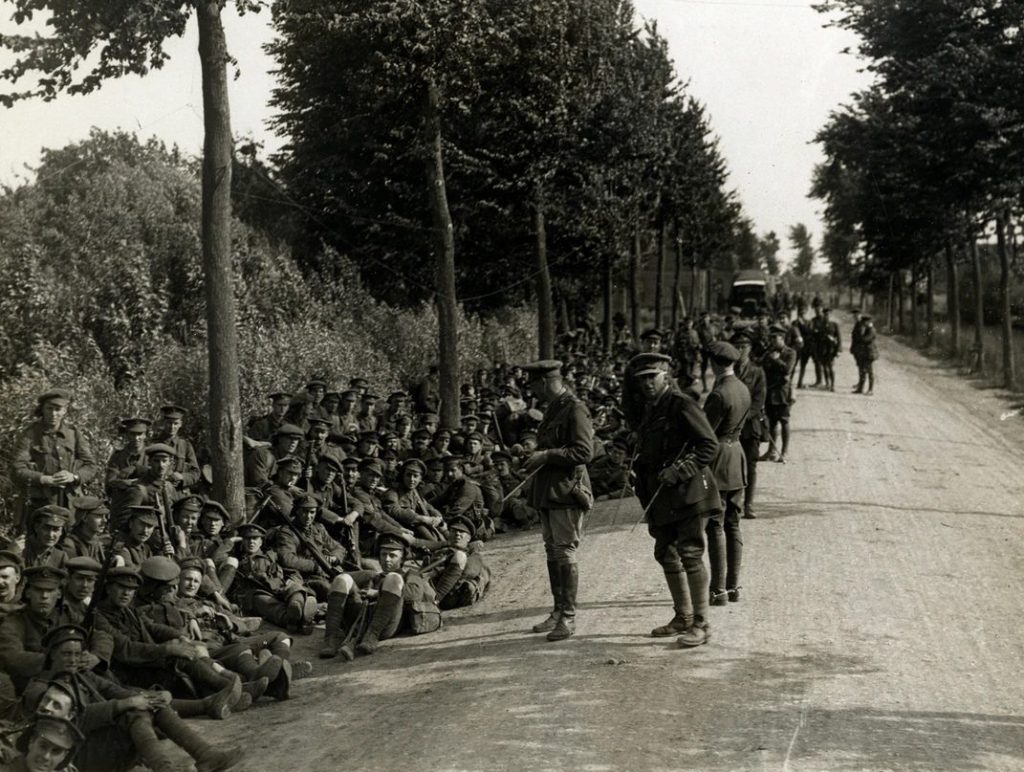Journalists covering the Western Front during the First World War were given strict orders to report the war in a way the government wanted it to seem.
The reporters risked execution and being kicked out of the establishment ring to cover the war in its true light.
This is the story of how the free press was banned under cover of war.
The first casualty of war is truth
The eternal quote that truth is the first casualty of war was certainly the case when the death rattle over Europe was rung in July 1914.
The Defence of the Realm Act was hurried through parliament which gave the government huge powers to censor the media and ensured the reports read by Britons on the breakfast table over wartime Cornflakes was one that fitted with the image of the great and glorious Britain, immune from mistakes on the battlefields of Flanders.
The act grimly read, “No person shall by word of mouth or in writing spread reports likely to cause disaffection or alarm among any of His Majesty’s forces or among the civilian population.”
‘The Suppress Bureau‘
The hostility between journalists and the British establishment was so strong that Lord Kitchener set up a Press Bureau in August 1914. This was a body vetted and checked by Government to filter reports and published a more pruned version to the public.
Press reporters were banned from the frontline and the new ‘outlaw’ journalists quickly dubbed the new body as ‘the Suppress Bureau.’
The suppression reached so far as to paint the first day of the Battle of the Somme almost as a victory.
One official report read, “As far as can be ascertained our casualties have not been heavy.”
This, the worst single day in British Military history in terms of deaths with over 23,000 British deaths that day.
Some journalists, however, became Official War Reporters. They were given a ticket back to the front, only if they accepted Government control over what they wrote. Others simply moved to the Eastern Front, as there were no press restrictions there.

Risk of Execution
Lord Kitchener felt the journalists, if granted their freedoms, would produce subversive reports which would eat away at the national morale.
Hamilton Fyfe, who would go on to edit the Daily Mirror and the Daily Herald said Kitchener, “talked wildly about having the reporters shot if they could be caught.”
Daily Mail reporter, Philip Gibbs was threatened with execution after refusing to return home from the front. His reports were too close to the truth for official censorship rules and was arrested and detained for 10 days.
The British military soon told Gibbs that if he were to return to France, he would be put up against a wall “with unpleasant consequences.”
Quite a story for one of the country’s own journalists.
Gibbs would later recall, “It was the most astonishing thing in modern history, the secrecy behind which great armies were moving and fighting. To be quite plain, we were outlaws.”
After the bullets fell silent
Once the war was over, many journalists were offered knighthoods for their service to journalism.
However some, such as Hamilton Fyfe refused, believing it to be a grubby bribe to keep quiet over the censorship and contempt British journalists felt during the four years of war.



